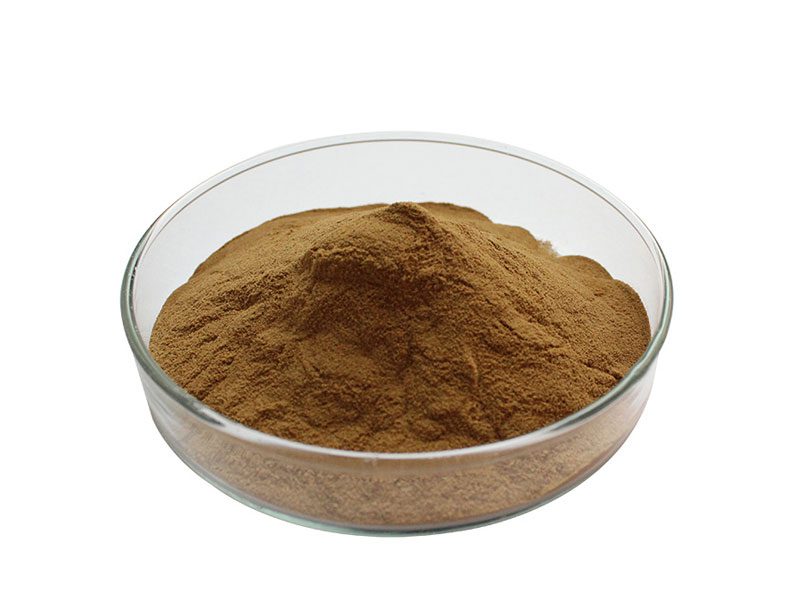Table of Contents
What is Organic Maitake Mushroom Extract Powder?
Organic Maitake Mushroom Extract Powder is derived from the Grifola frondosa mushroom, commonly known as Maitake or “Hen of the Woods.” This mushroom has been revered in traditional medicine for its immune-boosting and adaptogenic properties. Rich in beta-glucans, polysaccharides, and antioxidants, Organic Maitake Mushroom Extract Powder is a potent ingredient for supporting immune health, overall vitality, and well-being. Sourced from organic Maitake mushrooms, free from pesticides and chemicals, this extract powder is perfect for supplement formulations, functional foods, or herbal teas.
Production Process:
- Sourcing: Our organic Maitake mushrooms are grown under controlled, sustainable conditions without the use of pesticides or synthetic fertilizers.
- Harvesting: The mushrooms are harvested at their peak maturity to ensure high levels of active compounds.
- Extraction: Using water or alcohol extraction methods, we obtain the bioactive ingredients, including beta-glucans and polysaccharides, from the mushroom fruiting bodies.
- Concentration and Drying: The extracted liquid is concentrated, then dried and finely milled into a fine powder to preserve the mushroom’s medicinal properties.
- Quality Control: Each batch undergoes rigorous testing to ensure potency, safety, and purity.
Key Features:
- 100% Organic: Free from synthetic chemicals, pesticides, and fertilizers.
- Rich in Beta-Glucans: Contains high levels of beta-glucans known to support immune function and enhance vitality.
- Antioxidant Properties: Supports overall health by combating oxidative stress.
- Adaptogenic Benefits: Helps the body adapt to stress and promotes overall well-being.
- No Additives: Pure, clean powder with no fillers, preservatives, or artificial ingredients.
- Vegan and Gluten-Free: Suitable for vegan, vegetarian, and gluten-free diets.
Specifications:
| Parameter | Limit/Description |
|---|---|
| Appearance | Fine, brown to tan powder |
| Beta-Glucans Content | ≥ 25% (Guaranteed minimum) |
| Moisture Content | ≤ 8% |
| Heavy Metals | Lead (Pb) ≤ 0.5 ppm, Arsenic (As) ≤ 0.3 ppm, Cadmium (Cd) ≤ 0.2 ppm, Mercury (Hg) ≤ 0.1 ppm |
| Microbiological Limit | Total Plate Count ≤ 10,000 CFU/g |
| E. coli | Absent |
| Salmonella | Absent |
| Packaging | 25 kg bags, or customized packaging options |
Applications:
- Immune Support Supplements:
- Ideal for immune-boosting formulas, as beta-glucans and polysaccharides are known to enhance immune function.
- Commonly used in capsules, tablets, and powder form for direct consumption.
- Functional Foods and Beverages:
- Can be added to smoothies, energy bars, soups, or teas for additional health benefits.
- Blends seamlessly into functional food products targeting immunity, vitality, and overall well-being.
- Herbal Teas:
- Used in tea blends aimed at promoting immune health and vitality.
- Can be combined with other adaptogenic herbs such as ginseng or ashwagandha for synergy.
- Traditional Medicinal Use:
- Maitake has a long history of use in traditional herbal medicine, particularly for supporting immune health and as an adaptogen.
Why Choose Our Organic Maitake Mushroom Extract Powder?
- High Potency: With a guaranteed beta-glucan content of at least 25%, our extract is potent and effective.
- Organic and Clean: Sourced from certified organic Maitake mushrooms, free from harmful chemicals and additives.
- Immune and Vitality Support: Known for its immune-enhancing and adaptogenic properties, perfect for boosting overall health.
- Rigorous Quality Control: Every batch undergoes stringent testing to ensure purity, safety, and potency.
- Sustainably Sourced: We prioritize environmentally friendly farming and ethical sourcing practices.
Packing

